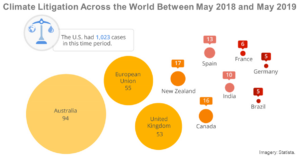 Strategic litigation encourages corporate accountability for climate change and broader corporate accountability movements when governments have repeatedly failed to take steps to adequately combat climate change. Climate lawsuits against companies are the result of increased collaboration between concerned individuals, cities, human rights and climate advocates, scientists and expert litigators, who have combined their respective expertise and strategies for corporate accountability. This briefing demonstrates that communities and advocates are increasingly using the courts to generate change and confront companies on their responsibility for climate harm as well as the
opportunities and challenges of climate change litigation against companies.
Strategic litigation encourages corporate accountability for climate change and broader corporate accountability movements when governments have repeatedly failed to take steps to adequately combat climate change. Climate lawsuits against companies are the result of increased collaboration between concerned individuals, cities, human rights and climate advocates, scientists and expert litigators, who have combined their respective expertise and strategies for corporate accountability. This briefing demonstrates that communities and advocates are increasingly using the courts to generate change and confront companies on their responsibility for climate harm as well as the
opportunities and challenges of climate change litigation against companies.
Business & Human Rights Resource Centre. "Turning Up the Heat: Corporate Legal Accountability for Climate Change". 2018. https://media.business-humanrights.org/...
Posted on 30/08/24
Recent Abstracts
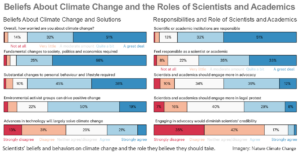
Climate Change Engagement of Scientists
Climate change denial rejects, disputes or opposes the scientific consensus on climate change. Climate change denial includes unfounded doubts about the extent of human-induced climate change, its impact on nature and human society, and the potential for human action to adapt to global warming. Climate change denial ...
Posted on 20/01/25
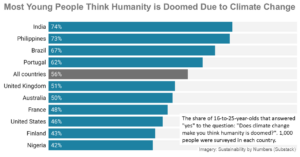
Climate Anxiety in Children and Young People and Their Beliefs About Government Responses to Climate Change: a Global Survey
This large-scale survey on the climate anxiety of children and young people globally looks at their attitudes to climate change and its relationship with the perceived government response. It surveyed 10,000 young people aged 16 to 25 in ten countries with 1,000 young people in each. More than half – 56% – said that “h ...
Posted on 18/01/25
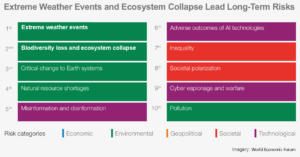
Global Risks Report 2025
Environmental risks present the greatest deterioration in the findings of the Global Risks Perception Survey 2024-2025, which captures insights from over 900 experts worldwide. Extreme weather events are anticipated to become even more of a concern, with this risk ranked #1 in the 10-year risk list. Biodiversity loss ...
Posted on 17/01/25
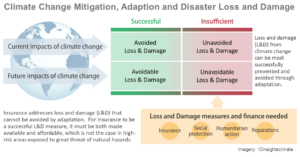
Getting the Costs of Environmental Protection Right: Why Climate Policy Is Inexpensive in the End
The misconception that stringent climate policies are too costly is widespread among political decision-makers and the public and an often-used argument by governments for sluggish policy making. However, the cost argument ignores the long-term economic benefits of policy changes and is build on the decomposition of e ...
Posted on 16/01/25
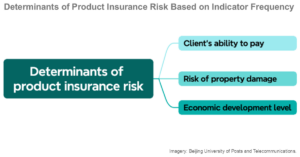
A Modeling Study of Insurance and Real Estate Risk Assessment in the Context of Global Climate Change
Catastrophic losses from extreme weather events are on the rise across the world, severely testing the capital reserves and claims-paying capability of many insurers. The total damage and economic loss from the Los Angeles fires alone is now estimated to be between $250 billion and $275 billion. Of this, insurers are ...
Posted on 15/01/25
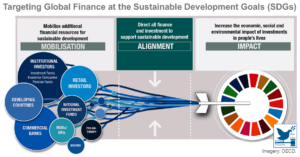
Targeting Global Finance at the Sustainable Development Goals (SDGs)
In 2015, the international community committed to a shared global vision towards sustainable development that includes 17 Sustainable Development Goals (SDGs) and identifies the areas where the most resources are most needed. The greatest potential for achieving the SDGs lies in aligning public and private resources w ...
Posted on 14/01/25
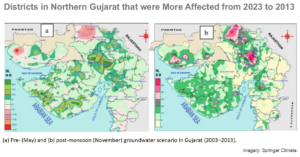
Impact of Climate Change on Water Crisis in Gujarat (India)
Gujarat, an economically developed state of India, is under severe threat of water scarcity. Rapid urbanization, prolific industrialization and multiple cropping practice have increased the water demand and consumption over the years. At the same time, frequency of heatwaves and intensity of droughts have increased resu ...
Posted on 13/01/25
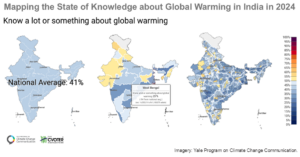
Variations in climate opinions across India
India is most vulnerable to the impacts of climate change. It has long been a key player in international climate negotiations and has begun implementing a diverse portfolio of policies nationally and within individual states to improve energy efficiency, develop clean energy sources, and prepare for the impacts of a c ...
Posted on 12/01/25
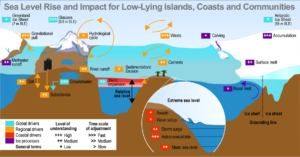
Rise in Sea Levels: Fate of Small and Mid-sized Coastal Cities
Climate change is accelerating the sea level rise in India and globally. In December 2023, sea level was 104 mm above 1993’s measure, which reveals the unprecedented rate at which the sea level is currently rising. This is the result of a two-fold effect, attributed to both the thermal expansion of seawater and melti ...
Posted on 12/01/25
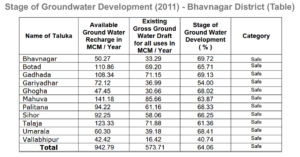
Groundwater Brochure Bhavnagar District
In Bhavnagar district, the overall groundwater is moderately developed (68.04%), but the quality is limited in the coastal areas and the yield is low in the hard rock areas inland. Rapid urbanization and simultaneous industrial activities have recently affected the hydrogeological system of the area. The district recei ...
Posted on 11/01/25

Ein Weckruf
Klima, Kultur, kritische Medien, NGOs und demokratische Institutionen sind in unmittelbarer Gefahr. Nachdem Herbert Kickl den Auftrag zur Regierungsbildung erhalten hat, steht einer blau-schwarzen Bundesregierung nichts mehr im Wege. Die Koalitionsverhandlungen haben nun begonnen. Dass die ÖVP die Kanzlerschaft der ...
Posted on 09/01/25
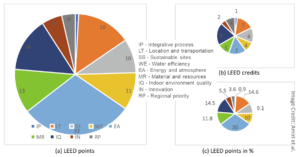
Embodied Emissions of Buildings – A Forgotten Factor in Green Building Certificates
As a points-based green certification, LEED assigns 110 points – the highest level, platinum (80 + points), accredits only 3 out of a total of 110 points directly to embodied emissions. In BREEAM, 12 points (8%) are directly related to material selection, of which 5 points (3%) are based on life cycle assessment (LCA). ...
Posted on 09/01/25
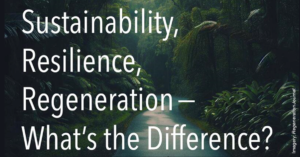
Sustainability, Resilience, Regeneration – What’s the Difference?
Sustainability postpones social, environmental and economic disasters in attempt to meet present economic growth while minimizing the impacts of current socioeconomic development for future generations. Although sustainability is widely considered a positive concept, it has numerous weaknesses that make it unsustainab ...
Posted on 08/01/25
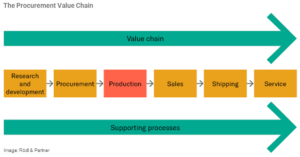
Developing of Sustainable Supply Chain Management Indicators in Construction
This paper provides tools that solve procurement problems in construction, where sustainability indicators were divided into social (governance), economic, and environmental groups. It identifies sustainability indicators for examining the supply chains of construction companies, allowing construction project managers ...
Posted on 08/01/25
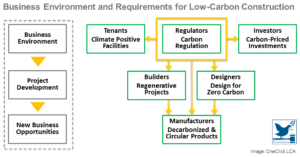
City Policy Framework for Dramatically Reducing Embodied Carbon
This is a framework for cities and other government bodies to develop a strategy, action plan, and policies in response to the climate emergency. It is a manual and blueprint to dramatically reduce embodied carbon from the manufacture, transport, use, and life-cycle end of construction material. It helps cities in re ...
Posted on 07/01/25

